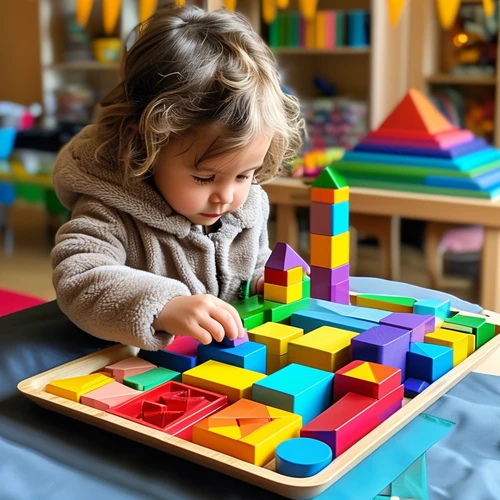The Montessori method, developed by Dr. Maria Montessori, is an educational approach that emphasizes independence, freedom within limits, and respect for a child's natural psychological development. This approach extends beyond the classroom into the home environment through Montessori activities. By incorporating these activities into daily life, parents can support their children's growth while fostering a love of learning.
Montessori activities are designed to encourage independence and promote a child's natural inclinations. These activities cover various domains, including practical life skills, sensory development, language, mathematics, and cultural studies. By engaging in these activities, children can develop essential life skills while forming positive associations with learning.
One of the primary benefits of Montessori activities is their focus on practical life skills. These skills include everyday tasks such as pouring, spooning, and dressing oneself. By practicing these routines in a child-friendly environment, children learn to complete them independently, increasing their self-esteem and confidence.
Sensory development is another critical aspect of Montessori activities. Sensory materials encourage hands-on exploration, helping children refine their five senses. These activities can include sorting objects by texture or size, identifying different shapes, or matching colors. By engaging with these materials, children develop a deeper understanding of their surroundings while strengthening their cognitive and motor skills.
The Montessori approach also emphasizes language development through specific activities designed to enhance vocabulary, reading, and writing skills. For example, Three-Period Lessons, where an object is introduced with its name before being repeated in subsequent sessions, help children form strong connections between words and objects.
Mathematics in the Montessori method starts with concrete materials that allow children to grasp abstract concepts through tactile learning. Activities like counting beads or using numeration rods provide a tangible foundation for understanding more advanced mathematical principles later on.
Incorporating Montessori activities at home does not require extensive resources; simple tools from around the house can often suffice. For instance, buttons and containers with different shapes can be used to practice fine motor skills, while a bowl of pom-poms can serve as useful manipulatives for counting or sorting.
Parents play a crucial role in facilitating these activities by creating an enabling environment where children feel supported but still maintain autonomy. This involves observing the child's interests and presenting activities that match their developmental stage without overwhelming them.
The ultimate aim of Montessori activities is to cultivate independent learners who are confident in their abilities, curious about the world around them, and capable of making thoughtful choices. These early experiences lay a strong foundation for lifelong learning.


